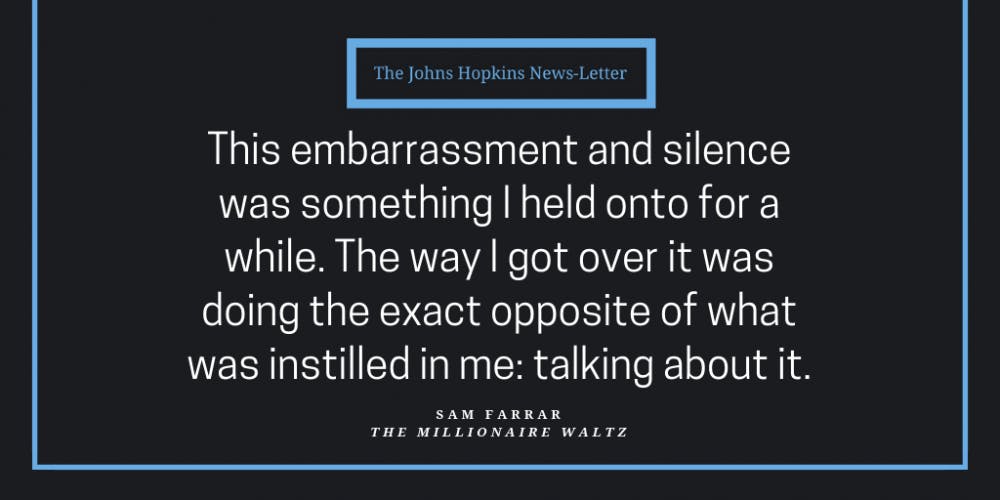
As I begin the second year of this column, I think it is fair to say that I really have no problem discussing my limited-income status. It has always been strange to me that people discuss finances in hushed tones. It is seen as rude to ask about anything related to income or economic standing. But why?
You may say that it is to prevent any judgement or ostracization, but to me, that is exactly the problem. That claim recognizes that if economic status was known, judgment and ostracization would result. It recognizes classism as a brute fact.
This isn’t just my personal experience either. Keeping quiet about economic standing is a standard deeply entrenched in every part of our society. High schools have a problem with underreporting for free and reduced-price lunch programs because students don’t want it to be known that their family doesn’t have much money. There is a general quietness about financial aid grants because revealing the size of your award could reveal your relative income status and, thus, social standing.
The University is not innocent of this. The free food pantry is a good example. This is an undoubtedly benefical program that is essential to combating food insecurity on campus. That being said, I was a little perturbed by their emphasis on privacy. It is located in Homewood Apartments, partially due to available space, but partly because it is one of the least central buildings. The line of thinking goes that such a location will provide some more privacy than a central location. Moreover, the endlessly emphaized gaurantee that you can come in and get something, no questioned asked, no interaction necessary, is again supposed to proctect those who need the food from any embarrassment.
However, in their attempt to solve one problem, they created another. Now that I live off campus, the pantry is almost a 30-minute walk away. In the attempt to increase privacy, actually getting food from the pantry became a much more cumbersome process. If I was in a place where I needed to use the service to eat, I would have to set aside at least an hour during the four hours a week it is open. I would argue that this presents a much greater barrier for participation than concerns over privacy.
What bothers me the most about this expectation of silence around economic standing is that it is asymmetrical. By this I mean the pressure is much stronger for those that are a part of limited-income households than those that are from high-income households. The hush that falls over a high-school classroom when free and reduced-price lunch forms are passed out is countered by overheard complaints in Brody that someone’s house is barely worth a million dollars.
“I am so poor” followed this anonymous, very much not poor person.
It was exactly the concern for embarrassment that was in the mind of University administrators when they decided on the location of the food pantry, which is actually what causes the shame in the first place. In some contexts, being overly concerned for the shame someone could feel for this is another way of telling them that they should feel shame for this. Let me be clear: I am in no way blaming the University for the creation of the silence expectation, but it is an undeniable fact that they support it.
For me, middle school was really the time that this idea started to cement itself in my mind. Teachers made sure to make the classroom a welcoming place so that everyone felt comfortable addressing their struggles, but they still called me aside if they ever needed to ask me if I could afford something for a project. If I ever talked about my family’s struggles in a friend’s house, their parent would cut me off or change the subject the second it came up. These seemingly benevolent precautions were actually the lessons that taught me to be embarrassed about my low-income status in the first place.
This embarrassment and silence was something I held onto for a while. The way I got over it was doing the exact opposite of what was instilled in me: talking about it. It was this column. It was being part of the First-Generation and Limited-Income Network. It was talking to staff and administrators about the University’s support network. It was leading the first pre-orientation for first-generation and limited-income freshmen.
It is this discourse that is neccessary for making Hopkins, and any environment beyond, a welcoming place for people of all walks of life.
This is already done through places like the Office of Multicultural Affairs and the Office of LGBTQ life. Every other identity on campus is publicly supported. Why is income status different?





